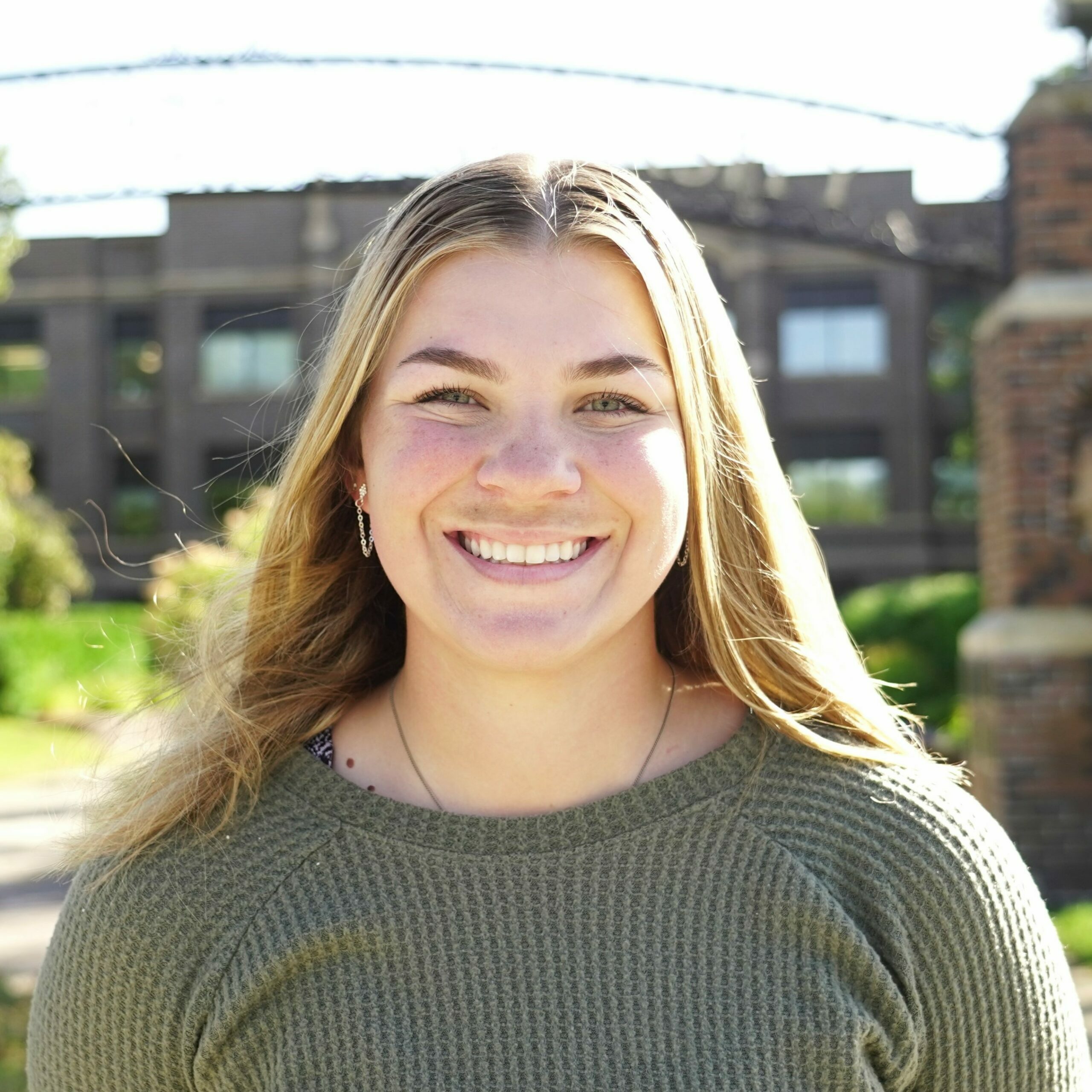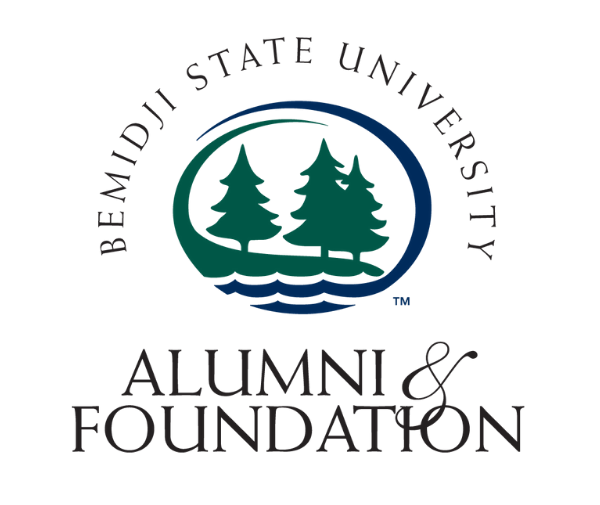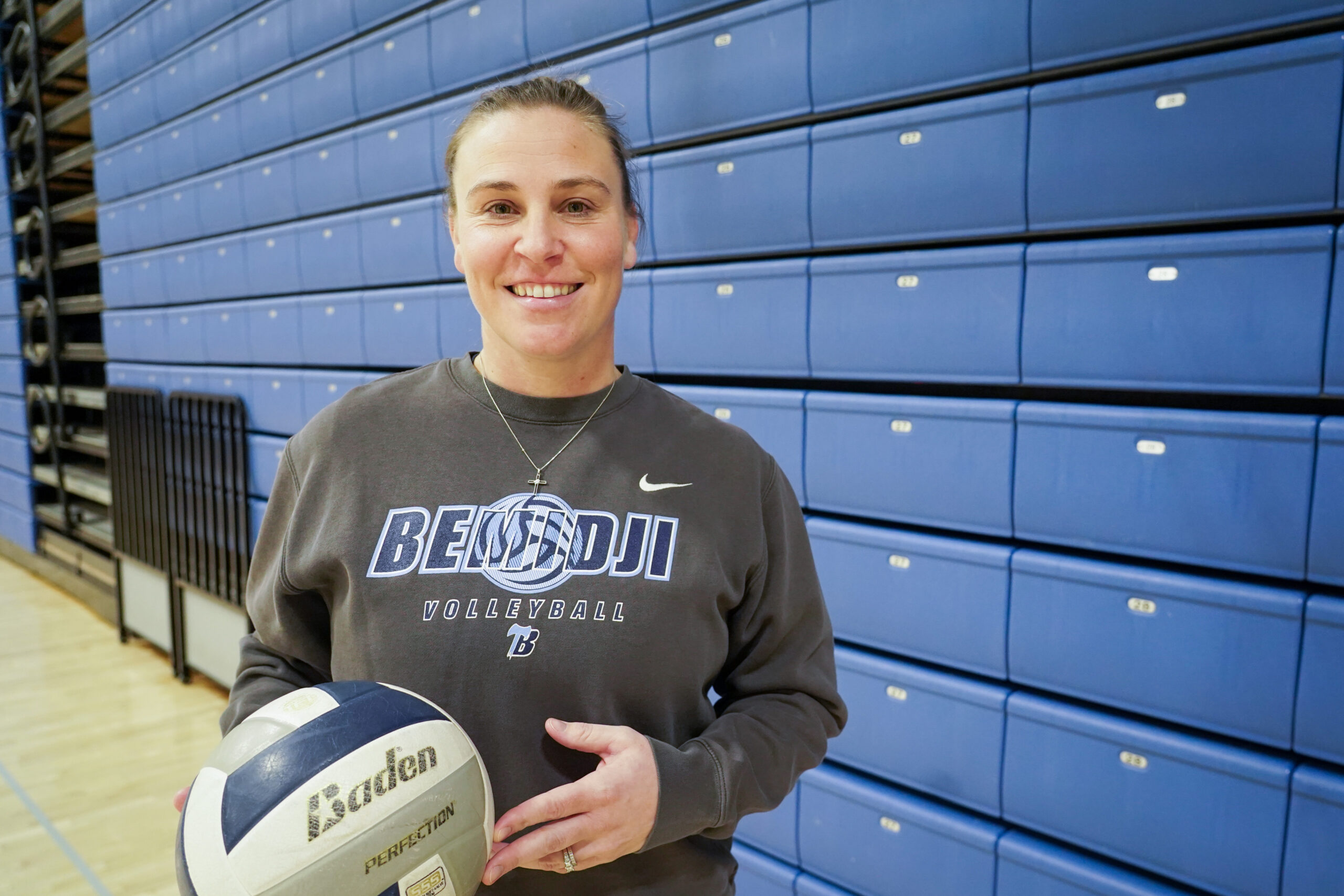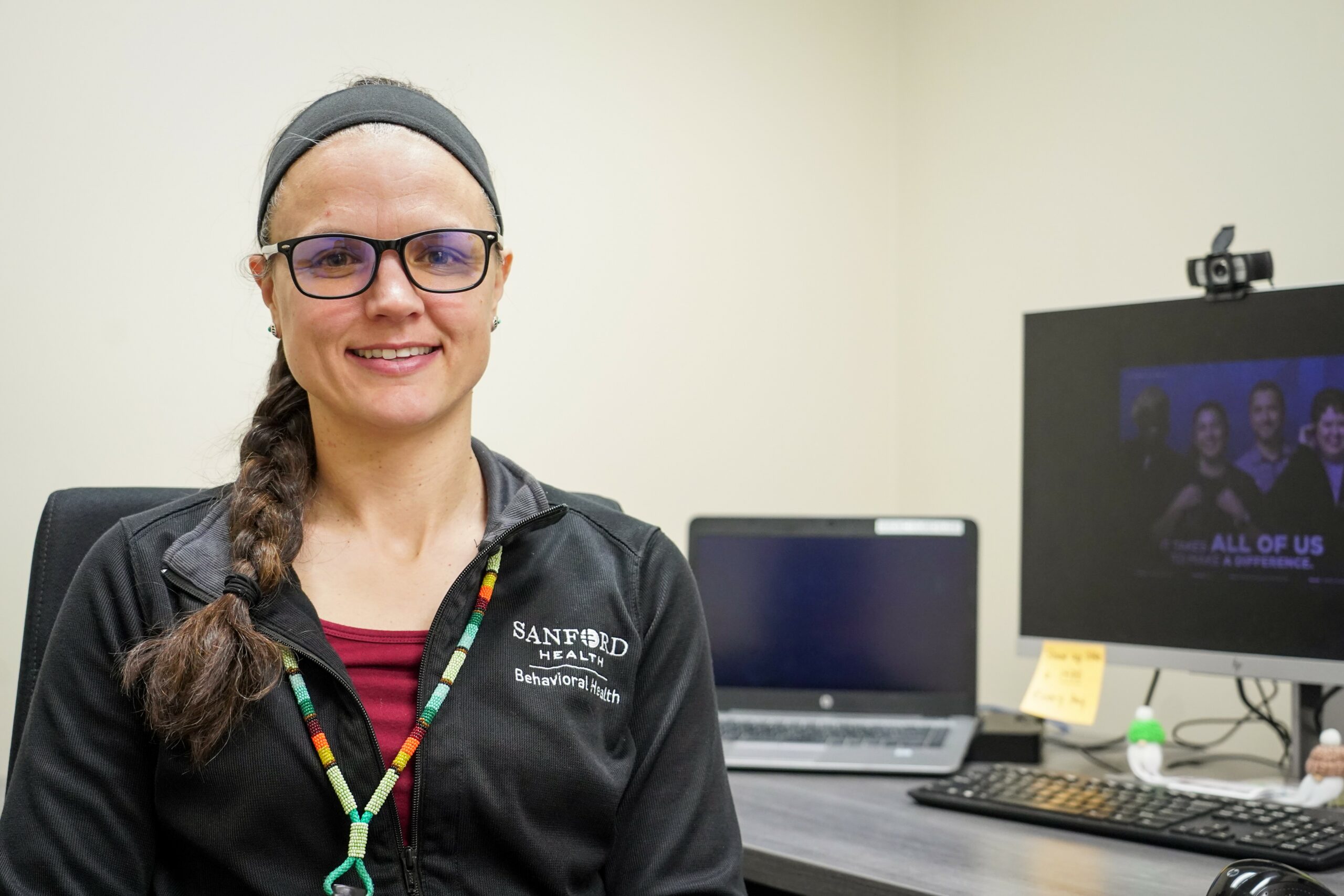
By Molly Houts
Published 4:44 p.m. on March 20, 2024
Every year, the month of March is dedicated to recognizing women’s history and celebrating trailblazing females. Empowering the women of tomorrow, this month provides encouragement by sharing stories of both hardship and success that women have faced.
In honor of Women’s History Month, Bemidji State University is highlighting five alumnae who are devoted to making an impact through their leadership roles in Bemidji. Of course, this isn’t an exhaustive list of local difference-makers – others like Denae Alamano, Chrissy Downwind, Suzy Langhout and more are exceptional in their own right – but they all demonstrate a shared aptitude for success.
Fueled by resilience, leadership and passion, these women are paving the way for future generations of female leaders across communities and the work force.
Annalise Braught: “Even on the longest day where I worked 80 hours, I still know I found my spot.”
In 2018, Annalise Braught found herself house-sitting a block away from BSU and, looking out across campus, decided to get her feet wet with a couple of classes.
“I just took an intro class and dipped my toes in the water a little bit,” Braught said. “I absolutely fell in love with the whole thing.”
While majoring in mass communication at Bemidji State, Braught job shadowed at The Bemidji Pioneer and eventually landed a job as a part-time news clerk.
“It just changed my whole life," Braught said.
She soon took a big step forward, landing a position as the Pioneer’s editor in January 2020. She leads a newsroom of about 10 reporters and photographers, many of whom are also BSU grads.
“It was very daunting to think about, especially as a woman, telling these experienced guys what to do,” she said. “There was a lot of intimidation with it.”
As well as being the editor, Braught also runs her own photography business called Iridescent Reflections, where she continues to pursue her strongest passion.
Hoping to ignite the spark in young generations, Braught has found ways to do outreach among the local high school and college classes, spreading her knowledge of her journalism career.
“You aren’t going to see the fruit of that right now. Maybe just planting the seed may make an impact,” Braught said. “It might be great for someone 10 years down the road when I am not here anymore, who knows. But I’m just trying to think of what I can be doing to make a bigger impact down the road.”
Alicia Kriens: “To see girls' passion for the game and their unselfishness means a lot to me.”
Alicia Kriens, the head coach of the Bemidji High School volleyball team, led the Lumberjacks on a Cinderella run to the Section 8-4A championship game during the 2023 season. BHS reached the title game as a No. 7 seed – the program’s first such appearance since 2015 – and marked a “huge milestone for us,” Kriens said.
Originally from the Twin Cities metro, Kriens was first drawn to Bemidji to play volleyball at Bemidji State University. She’s still sixth all-time in set assists with 2,503 during her BSU career, which spanned from 2004-08.
After graduating with a degree in elementary education, Kriens followed her passion of volleyball by coaching Bemidji Junior Olympic volleyball and eventually running the program for 12 years. She also spent four seasons as an assistant coach for Bemidji High School, and she’s been the Lumberjacks’ head coach since 2018. The team’s 15 wins in 2023 were tied for its most since 2014.
Despite pursuing an elementary education license, Kriens gives her time coaching upper-level players. “I didn’t know I was going to choose high school because big kids scare me,” she joked.
“My passion for it really drove me to teach (older) kids,” Kriens said. “I wanted that challenge of getting to a level to talk a lot of strategy and building off their fundamentals and getting them to a point where they leave and love the sport and stay around it.”
Kriens continues to influence young girls in the community and hopes to pass on her love of the game to future generations. “I want to give my time to help other young girls love it just as much as I do,” Kriens said. “That is my biggest pride.”
After her players graduate from playing, Kriens hopes the influence she had goes beyond just volleyball.
“I want them to leave me not just that they learned something about the sport but that they leave being a better person,” Kriens said. “I want them to understand the idea to put other people ahead of yourself.”
Ashlea McMartin: “Every single chance to interact with someone is a chance to have an impact and vice versa.”
Ashlea McMartin received one of the best pieces of advice through a gift engraved with the saying, “Now is the time to know that all that you do is sacred.” The proverb is now proudly displayed upon her desk, serving as a reminder to slow down and recognize the impact she has a chance to make.
“Prior to my master's degree at BSU, I was a very driven, Type-A person,” McMartin said. “When I set a goal, I very rarely fail. It wasn’t until I got into my master’s in that psychology world of really slowing down and analyzing who you are, what do you want to do in life. And recognizing that, each moment in life, we have the ability to impact people and our community.”
Earning her master’s degree in counseling psychology at Bemidji State opened the door for McMartin to work as a therapist at Upper Mississippi Mental Health Center. Now serving as the director of behavior health at Sanford Health in Bemidji, McMartin oversees community facing services and crisis services of Bemidji and the surrounding areas.
“We do a lot of debriefs in the community,” McMartin said. “When there is a big event, disaster, or bad outcome, I’ll get pulled in to lead the clinical for that.”
Being in a leadership role that can impact so many lives is one thing McMartin takes pride in. But she said that opportunity is not exclusive to her.
“I just am in a position that allows me to go out and do big things,” McMartin said. “But the reality is we each have the opportunity in our day-to-day life to do great things in little ways.”
Abby Randall: “Some of the best leaders I know aren’t always the smartest. They’re just the bravest.”
Abby Randall’s initial application to enroll at Bemidji State was rejected. But that didn’t stop her from achieving her goal. Taking a leap of faith, she decided to call the admissions office and find out what she could do to get accepted into the university.
“I was kind of like, ‘I’m not going to take no for an answer,’” she said.
The leap of faith paid off. Randall was ultimately accepted into BSU, put in the work and became a first-generation college graduate.
“I always thought I would enjoy going to college, but never really thought that I could,” Randall said. “I didn’t have that self-confidence.”
Yet, because of her moment of bravery, Randall opened doors for herself and earned a bachelor’s degree in marketing communication. She has used that degree to climb the ladder, and she now assists local businesses through her position of executive director at the Bemidji Area Chamber of Commerce.
“The hard work we do is helping our local businesses,” she said. “We offer means of exposure, resources, networking, advocacy and information, development and growth, and credibility and referrals.”
When the pandemic hit the Bemidji community in 2020, local businesses were at the forefront of suffering. It is here where Randall found her purpose of aiding those neighbors and helping them stay afloat.
“During COVID, we really found our purpose. And that is convening everyone together and working together,” Randall said. “I think it made us realize why we are special and what we do for local businesses.”
Randall was a key part of bringing the community together to lean on each other during that time. Because she knows just how much a little bit of good faith can produce.
“The grit and the tenacity of getting rejected and hanging in there – and then going on to get where I am right now – I am proud of myself,” she said.
Erika Bailey-Johnson: “No matter what I do, I have to work for Mother Earth.”
Devotion to sustainability was rooted in Erike Bailey-Johnson at a young age.
“It is not something for me that turns on and off,” she said. “It is part of how I define myself. I feel very fortunate to be able to do work that is part of myself.”
Following her passion for being hands-on with the environment, Bailey-Johson now leads Bemidji State’s commitment to a greener campus as the Sustainability Director and the People of the Environment coordinator.
As an enrolled member of the Red Lake Band of Ojibwe, Bailey-Johnson also brought an Indigenous lens into her work, which successfully helped lay the foundation of a new sustainability model in 2008. This new model connected sustainability to racial equity and social justice, which has been adopted by numerous others.
“This has been used by us to define our work and by a lot of other places, universities, and organizations,” Bailey-Johnson said.
Along with the Indigenous perspective, Bailey-Johnson also incorporated a wellness emphasis into the foundation because she witnessed too many staff members becoming burnt out.
"When I started my job, we started looking at sustainability through a wellness lens making sure we take care of ourselves,” she said. “We can’t do all this changed work without taking care of ourselves first.”
Another career highlight Bailey-Johnson takes pride in is her contribution to the Niizhoo-gwayakochigewin project at BSU. Niizhoo-gwayakochigewin – an Ojibwe phrase which translates to “two ways of doing the right thing in the right way” – is a unique interdisciplinary program that offers a groundbreaking Indigenous sustainability studies major and minor, graduate student positions and summer internships.
It has also embedded Indigenous views into curriculum, created a collaborative group of people, worked with undergrad students (Niizhoo-gwayakochigewin internship program) and created a fellowship program for graduate students.
Sustainability is more than just a mindset for Bailey-Johnson. It plays a vital role in how she perceives the world.
“Most people, when they think about community, they just think about people and that’s really good,” she said. “But my lens of community is way broader than that. My lens of community is Mother Earth and everything that supports people, trees, water and that whole network of relationships.”

KEEP READING:






